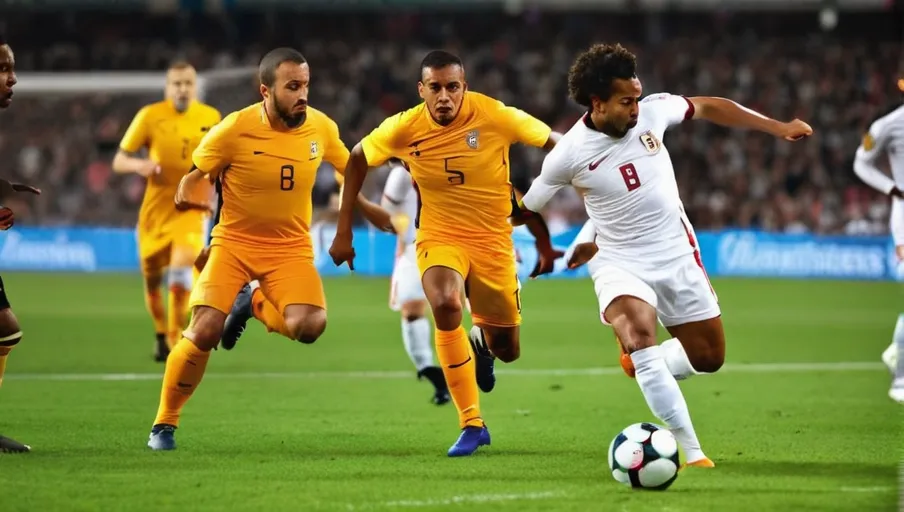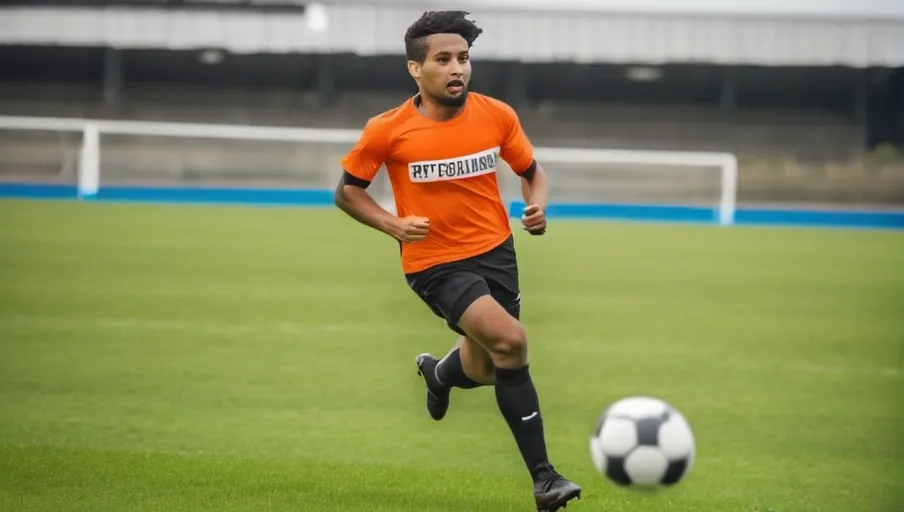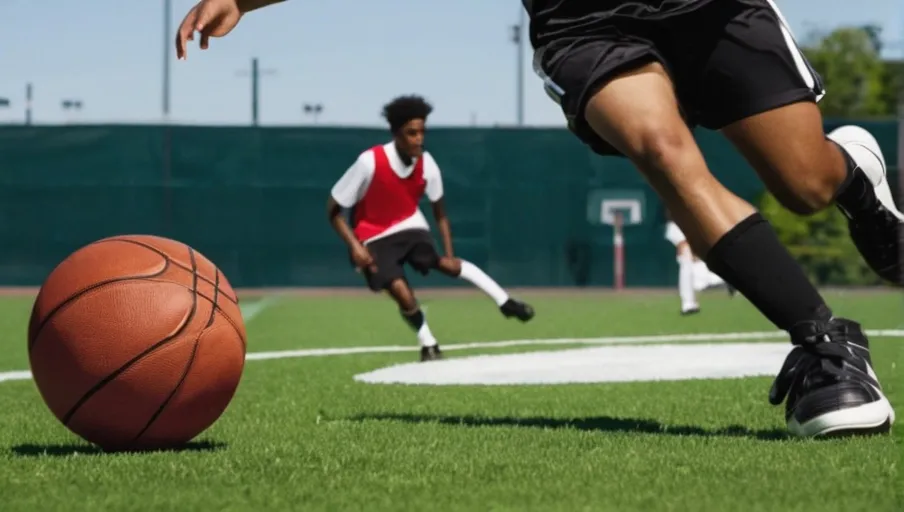
Are you wondering if soccer is too hard to play? You’re not alone! Soccer requires a lot of physical and mental energy, but the rewards are worth the effort.
In this article, you’ll learn about the physical and mental challenges of soccer, how it compares to other sports, and strategies for improving your performance.
You’ll also get some training tips and discover the benefits of playing!
- Soccer requires physical strength, endurance, cardiovascular health, power, accuracy, coordination, agility, stamina, and focus.
- Soccer also presents mental challenges in terms of discipline, focus, team dynamics, game awareness, decision-making, and understanding strategies.
- Soccer is a complex sport compared to others, with intricate teamwork dynamics, crucial roles for midfielders and goalkeepers, and positions that necessitate coordination and cooperation.
- To improve soccer performance, players should focus on mastering technique, developing fitness levels, maintaining a healthy diet and sleep schedule, working with the team to develop strategies, and making strategic decisions on the field.

Playing soccer requires physical strength and endurance. This is particularly true if you want to be successful in the game. To be able to run up and down the field, you need to have good cardiovascular health.
Kicking technique also plays a vital role, as it requires a combination of power, accuracy, and technique. Ball control is another important factor, as it requires coordination and agility to be able to dribble and pass the ball accurately.
To stay in the game the whole time, you need to have good stamina and the ability to focus during the intense moments. You also need to be able to use your body to protect the ball from opposing players.
These physical challenges are what make the game of soccer difficult and enjoyable.

Developing the mental discipline and focus required to play soccer can be a challenge. Team dynamics, game awareness, and decision-making are all essential components of the game that need to be mastered in order to have a successful performance on the field.
| Skill | Description |
| — | — |
Team Dynamics: Working together with teammates to achieve a common goal
Game Awareness: Being able to anticipate others’ movements on the field |
| Decision-Making | Deciding when to pass, shoot, or dribble quickly and accurately |
The physical ability to play soccer is, of course, important. But the mental aspect is equally important. Soccer players need to stay focused and think ahead so that they can make the best decisions in the heat of the moment.
They must also think about the big picture—not just their individual play but the entire team. It’s essential to understand the team dynamics in order to come up with strategies that will lead to a successful outcome.
Mental strength and focus are essential for soccer players to succeed. It takes dedication and hard work to acquire these mental skills, but with practice, they can be developed. Knowing how to use the mental aspects of the game will give players an edge over the competition.

Comparing soccer to other sports can help you understand how different sports require different mental and physical skills. Teamwork dynamics are a key factor, as each player has a specific role and position that contribute to the team’s success.
In soccer, the midfielders are key to the team’s success, as they connect the defense and offense and act as a link for the team’s attack. Furthermore, the goalkeeper’s position is also a critical part of the team’s success, as they’re the last line of defense for the team.
Player positions also come into play, as defenders, midfielders, and attackers all have to coordinate their movements and work together to achieve success. Soccer requires a lot of complex teamwork dynamics and player positions, which makes it a difficult sport to play.

Improving your soccer performance requires making strategic decisions about how you move on the field and interact with your team. Mastering technique is key to becoming a better player. Practicing dribbling drills, passing combinations, and shooting techniques can help you improve your skills.
Developing fitness levels is also important, as physical endurance can make a huge difference in your performance. You should focus on cardiovascular activities like running and cycling, as well as strength training. It’s also important to have a good diet and enough sleep to stay energized during games.
Lastly, you should practice working together with your team to develop strategies for offense and defense. With the right strategies, you can become a better soccer player.

To reach your goals on the pitch, you need to train smart and efficiently. To get the most out of your practice sessions, you should focus on mastering technique and developing agility. Here are 3 ways to help you do just that:
- Increase intensity. Push yourself beyond your comfort zone. Increase the duration and difficulty of your drills to get the most out of them.
- Mix it up. Keep your training routine fresh with a variety of drills and exercises to help you stay motivated and challenge yourself.
- Focus on technique. Concentrate on perfecting the basics and mastering the fundamentals. This will help you improve your agility and become a more confident player.

Playing soccer offers many physical and mental benefits. From developing stronger muscles and better cardiovascular health to honing your teamwork and communication skills, the game offers a plethora of advantages. Regular practice and dedication can help you improve your game and help you stay in shape.
Additionally, playing soccer can help you learn how to deal with injuries, as they’re a common part of the game. Another advantage of soccer is the development of team dynamics.
Working together as a team is essential for success, and playing soccer can help you learn how to do that. The game also teaches you about the importance of strategy and how to work together to achieve a common goal.
All of these factors make soccer an enjoyable and rewarding experience.
Playing soccer is no easy feat, but the rewards are worth it. It takes physical and mental strength, and a good understanding of strategy and technique.
With proper training and dedication, you can become a great soccer player and reap the rewards of improved fitness, confidence, and camaraderie.
So don’t be intimidated by the challenge; embrace it—you won’t regret it.


